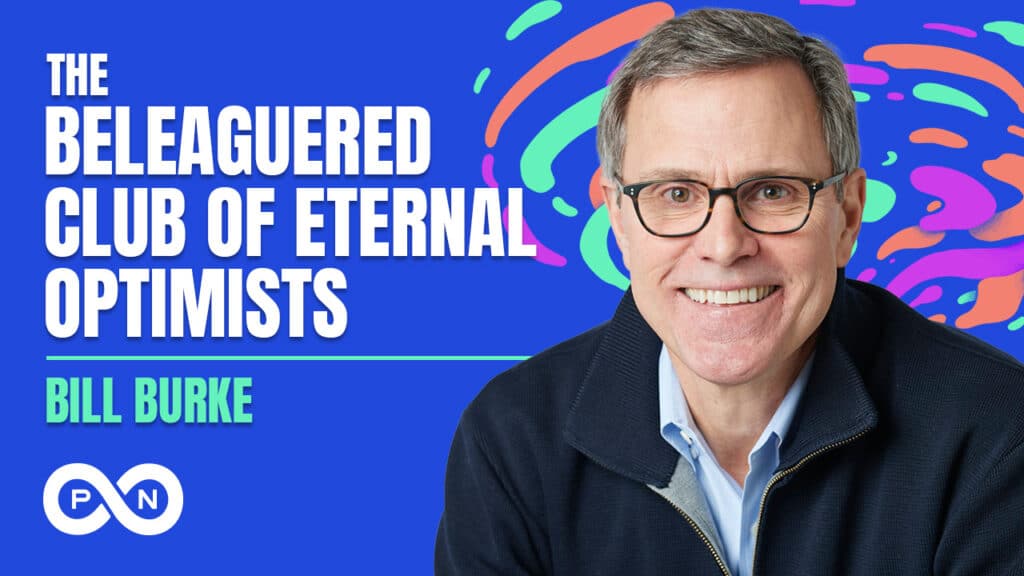Volcanoes are erupting in The Philippines, but on-fire Australia received some welcome rain. The Iran war cries have been called off and The Donald’s military powers are about to be hamstrung by the Senate. Meanwhile, his impeachment trial is starting, and we’re all on Twitter for a front-row seat.
What Could Go Right? The Other Side of Hurricane Milton
Misinformation and division is only half of the story.
This is our weekly newsletter, What Could Go Right? Sign up here to receive it in your inbox every Thursday at 5am ET. You can read past issues here.
The Other Side of Hurricane Milton
Last week, Hurricane Milton wallopped Florida, flooding homes, sweeping away cars, and dropping at least 20 tornadoes onto the state. It ripped off parts of Tropicana Field’s roof, felled construction cranes, and left 24 people dead and three million without power. The recovery, which began immediately, has been laced with petty political fights as well as finger-pointing over misinformation spread on social media.
Most of you will know that story already, because the politics and misinformation angle is the one most reliably covered by the media. That isn’t a knock on the media—they are right to cover it. It’s absurd that conspiracy theories about the government controlling the path of the hurricane to miss blue-voting districts are being shared online. It’s frustrating that Donald Trump’s campaign claimed that the Federal Emergency Management Agency (FEMA) has “run out of money . . . because Kamala Harris used the funds for free giveaways to illegal immigrants.” (This conflates two different budgets under FEMA, one for natural disasters and one for migrant support.) Meteorologists have received death threats, and the FEMA rumors have disrupted their workers’ efforts in North Carolina post-Hurricane Helene.
There are other sides to the Hurricane Milton story, however. And I fear that focusing on only one of them will produce conceptions of American society as irretrievably damaged.
I spent most of Hurricane Milton on “Hurricane Tok” (a category plus “Tok” is the way TikTok users refer to any subgenre on the platform). Hurricane Tok videos were from every crack and corner of society: Florida residents from the homeless to the ultra-wealthy, newscasters, grifters, local celebrities, government officials, emergency responders, and so on. There is no way to tell how many people were tuned into Hurricane Tok over a handful of days, but many posts had hundreds of thousands of likes, and I saw comments and videos from worried watchers in countries all over the world.


Hurricane Tok encompassed the full gamut of the human experience. Conspiracy theories about government intervention? Check. (Those videos have since been taken down.) Heroes turned villains and back again? Check. People staying in evacuation zones just to cash in on the views? Check. Wired called watching Hurricane Milton on TikTok dystopian. Rolling Stone was more restrained: it was a hellscape.
Hurricane Tok had some dystopian elements, to be sure. But it also included an astonishing amount of mutual aid, empathy, and good, practical advice. Meteorologists posted evacuation suggestions for those who couldn’t afford or struggled to leave the state amid gas shortages and traffic. Over $10,000 poured in for this woman who lost her home, and thousands of commenters offered their emotional support to this woman who was unable to take her dying dog to the vet during the hurricane.
TikTok users helped another woman convince her family in Cape Coral, Florida, to evacuate. They shared information about shelter locations and how to get there using Uber’s free rides, how to prep homes for hurricane first-timers, offered advice on the proper fit of life vests, and invited strangers into their homes—this woman evacuated to a farm in Tallahassee, Florida, with her pet monkey and dogs after seeing the offer posted by another user. Loads of people answered the call from animal shelters to foster dogs and cats while the storm raged, and several of them became “foster fails” after it calmed, deciding to keep their new pets permanently.
Almost 400,000 people liked this video pushing back against hurricane conspiracy theories, a much more representative sample of the American public than online cranks. And then there were the videos that highlighted the best of American panache, like this man floating along the floodwaters the day after the hurricane on an air mattress, paddle in hand.
It’s a cliche to say that people band together after big disasters, but it’s true, and it’s just as true on our social media platforms, which showcase the worst of humanity but also the best. To highlight only one side of that spectrum is to risk mistaking that side for the whole.
P.S. I’ve written before about the positive impact of improving weather forecasts and thus, preparation and response. Some have grumbled about how the 10–15-foot storm surge in Tampa Bay, Florida, that meteorologists warned about never materialized, but Axios has a short piece on the impressive accuracy of the National Hurricane Center’s forecasts before Milton hit.
What Could Go Right? S6 E25

Why is there a need for optimism? Are we really worse off than we were decades and centuries ago? How could the next generation be the “greatest generation”? Zachary and Emma speak with Bill Burke, founder of the Optimism Institute and host of its Blue Sky podcast. They discuss the world’s shift from utopian technology glee to dystopian AI fear, the ways that pessimism could halt progress, and how looking back through history can brighten one’s outlook. | Listen now
By the Numbers
46%: The volume share of lab-grown diamonds sold in US jewelry stores, compared to natural diamonds’ 54 percent. Lab-grown diamonds are growing more popular because they’re cheaper and clear of the labor abuses associated with mining.
40%: The share of applications for parental leave received by the Netherlands’ state benefit agency that came from fathers, up from 33 percent in 2023.
$137M: The amount of federal money allocated to gun violence research since 2020, after Congress struck a bipartisan deal for funding in 2019. Only $24.5 million was allocated in the previous five years.
Quick Hits
🫁 In a Phase 3 trial, a drug combination halted lung cancer’s progression for more than 40 percent longer than the standard drug (almost 24 months versus 17). It’s a step forward for precision medicine: the trial recipients all had a mutation of a certain gene that causes nearly a quarter of global lung cancer cases.
🤞 The US obesity rate has stopped climbing after decades of growth. Experts think that it’s due to the prevalence of weight-loss drugs like Ozempic.
💊 The Canadian government will now cover 100 percent of the cost of contraceptive and diabetes medication for those not on insurance. They will also pay for out-of-pocket costs for those whose insurance covers the medication already.
🦠 Testing wastewater is one method public health officials use to monitor whether cases of an infectious disease like Covid-19 are increasing or decreasing. Researchers in Scotland and China have now developed a new wastewater-based test that is cheaper—at only a dollar per use—easier, and faster than standard PCR tests.
🌎 The 2024 Living Planet Index has been published, with a headline of a 73 percent decline in wildlife populations since 1970. Our World In Data breaks down what that number means and does not mean—for example, it does not mean that the Earth has lost 73 percent of wildlife, or that 73 percent of species are declining—here, so that we can understand the report correctly.
☀️ A new report from the International Energy Agency forecasted global renewable power generation to reach 2.7 times its 2022 level by 2030, just under the tripling of renewable energy set as a goal at last year’s United Nations climate summit. (Renewables are just one of several energy goals that were set at COP28; you can track their progress here.)
⚖️ The United Kingdom’s new Labour Party-led government has introduced an overhaul of workers’ rights. The bill establishes the right to paternity leave and unpaid bereavement leave on day one of any job, requires bosses to consider requests for flexible working, and more, but may take years to come into effect.
🧑🚀 Most of the food consumed in space is transported from Earth. But scientists are experimenting with creating a kind of milkshake or yogurt that could sustain astronauts and is made by growing bacteria on asteroid-like material.
👀 What we’re watching: The Supreme Court appears poised to rule that ghost guns are subject to the same laws as any other firearm, upholding a restriction placed on ghost gun kits by the Biden administration that is already in effect.
💡 Editor’s pick: Placentas used to be the treatment du jour for hard-to-heal wounds, until falling out of favor in the 1980s due to concern around AIDS. Now, doctors are using them again, for everything from restoring vision to treating third-degree burns. (NYT $)
New Member Alert

The Progress Playbook looks at the countries, cities, and organizations that are leading the way in climate action and sustainable development. The publication has a global focus and aims to create a comprehensive blueprint of best practices for decision-makers everywhere to follow.
TPN Member Originals
(Who are our Members? Get to know them.)
- An economist’s guide to helping victims of Helene and Milton | Bloomberg ($) | Tyler Cowen
- It’s actually a huge failure that we can’t control hurricanes | Faster, Please! | James Pethokoukis
- Media organizations are blowing their endorsements | Slow Boring | Matthew Yglesias
- Jack Smith’s new filing on Donald Trump | Tangle | Isaac Saul
- Dumb tariffs | The Edgy Optimist | Zachary Karabell
- Kamala Harris and Donald Trump’s economic plans, compared | GZERO | Ian Bremmer
- How Harris can finish strong | NYT ($) | David Brooks
- The authoritarian’s fortress of lies | Lucid | Ruth Ben-Ghiat
- Harris’s appeal to Georgia’s many Indian American voters is split | WaPo ($) | Bina Venkataraman
- Political parties build coalitions with black voters but not trust | WaPo ($) | Theodore R. Johnson
- Willful ignorance of the male suicide crisis | Of Boys and Men | Richard V. Reeves
- For true satisfaction, get off the family plan | The Atlantic ($) | Arthur C. Brooks


